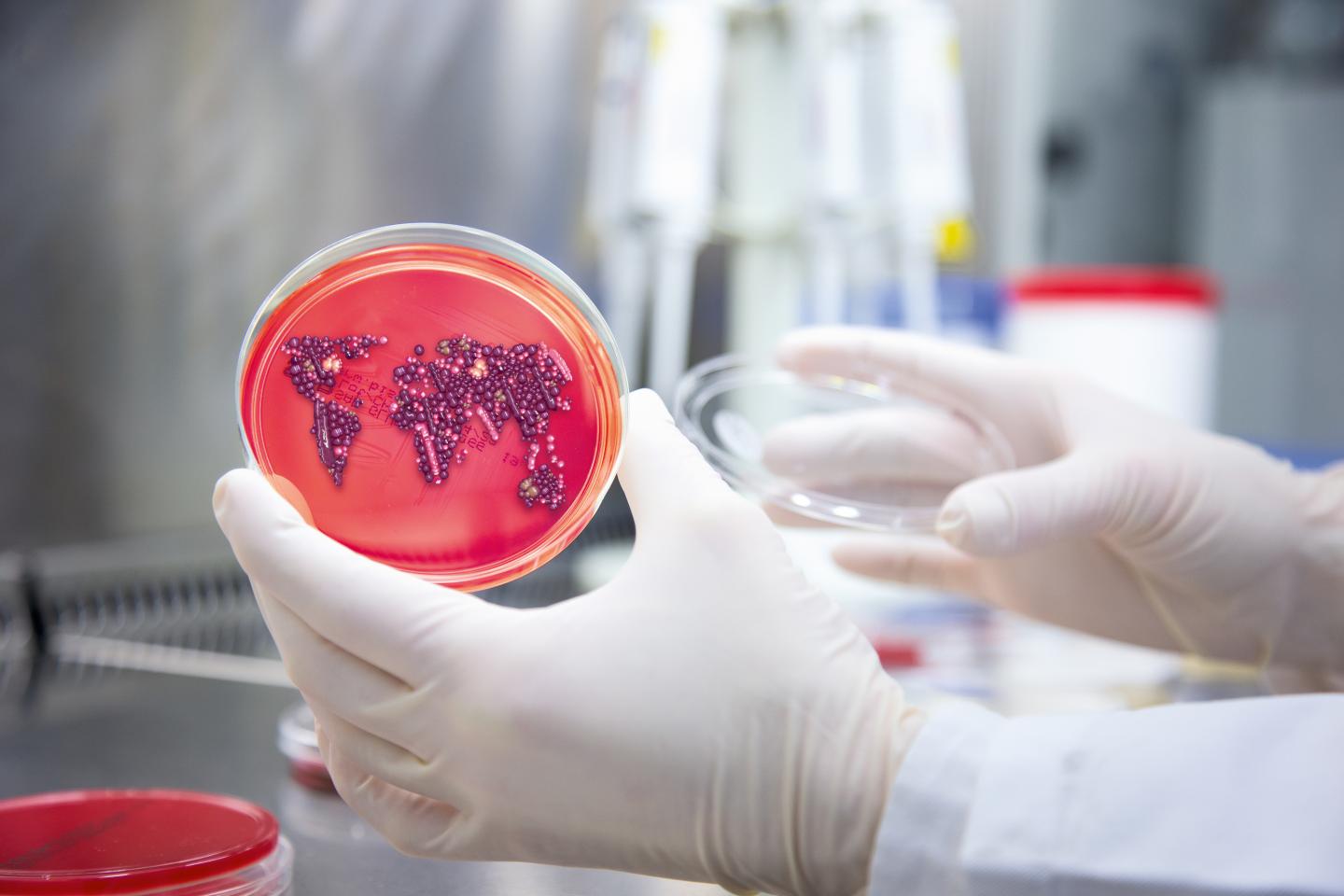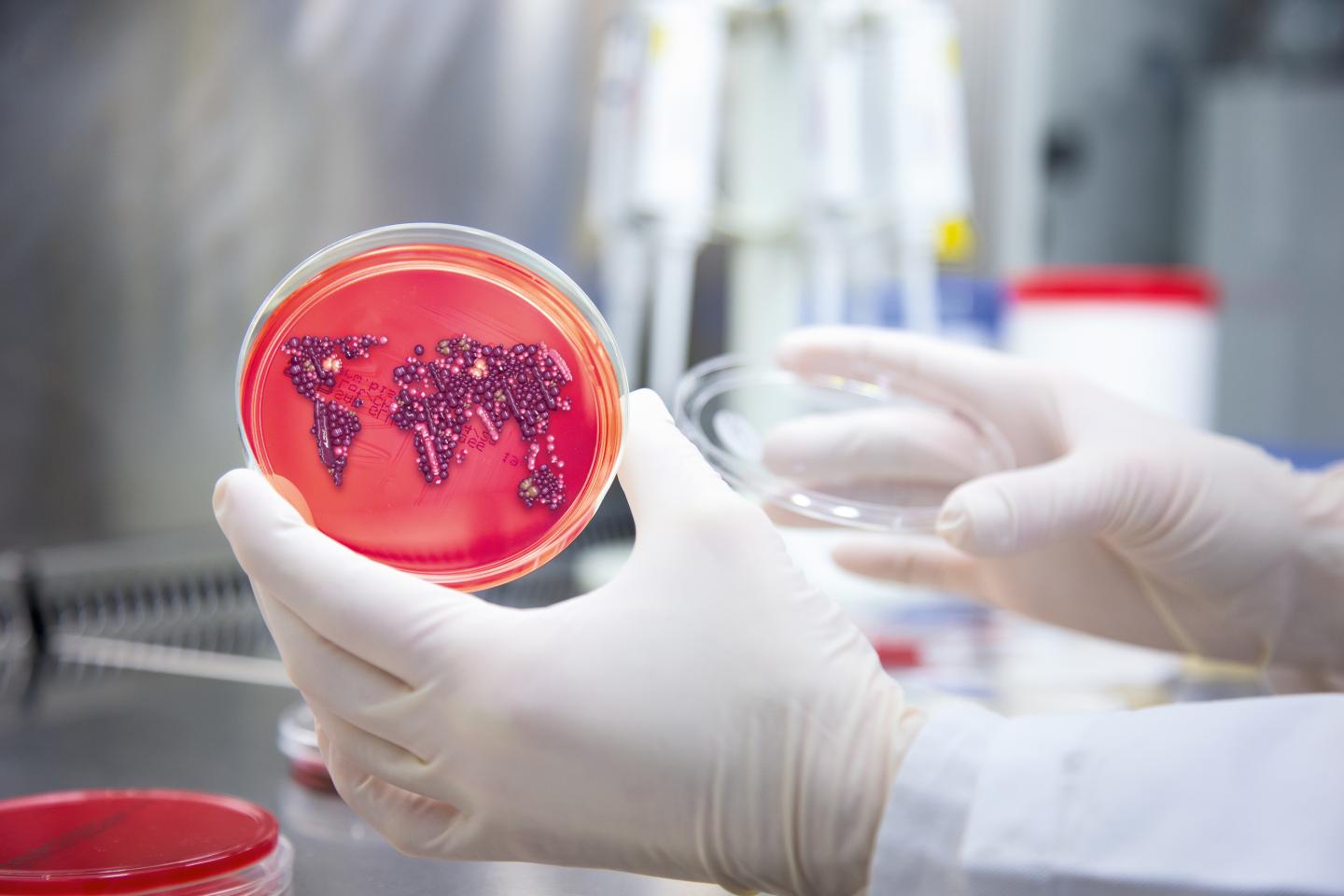
Credit: Curetis
The researchers will be presenting their rapid test procedures, and their outlook for the future, at Stand E28 at the Cebit computer trade show in Hannover, Germany.
Just a few days ago, the World Health Organization (WHO) published a list of twelve antibiotic-resistant bacterial strains, which are considered to be the "greatest threats to human health". Andreas Keller, professor for Clinical Bioinformatics at Saarland University, is also studying these bacterial resistances. "If a patient receives faster access to the treatment best suited to fight the disease in question, it is not only to the benefit of the patient. It also helps dispensing currently available antibiotics in a more targeted manner, so that the development of resistances can be slowed down," Keller explains.
Existing methods to uncover these resistances in bacterial strains are very time-consuming. First the bacteria are grown in Petri dish nutrient solutions. Once a culture is visible, its response to antibiotics can be tested. But until the result is conclusive, the patient's precious time goes by. "It can take some 24 to 72 hours for the doctor to know for sure which antibiotic to use for the respective treatment. But medical professionals will rarely let a patient suffer for that long, so they tend to rely on their experience," says the Chief Commercial Officer of Curetis, Achim Plum. "It's not much use to patients, if doctors pick the wrong antibiotics. What is more, with every antibiotic use, the risk of generating resistant pathogens is increased. And since bacteria multiply very quickly, this is like evolution in time lapse," says Plum. The company from Southern Germany already offers rapid-test procedures with specialized molecules that detect pathogens, and their specific resistances, for various conditions including pulmonary infections, tissue and transplant infections, and infections of the blood or abdominal cavity. Plum: "We are currently using genetic markers for antibiotic resistances that have been known for a while. In this manner we can cover the most common resistance mechanisms. But we are also aware that there are still resistances that elude us. This is why we are also trying to decipher those mechanisms that may be uncommon at present, but could become a major threat in future. But in order to develop more efficient test procedures, we need studies of hundreds or thousands of pathogens that have been isolated from patients. We are looking for the complete genetic information of pathogens, as well as their response to common antibiotics, so that we can establish links between antibiotic resistances and the genetic changes that prompted them."
For this purpose, Curetis acquired the genetic library GEAR ("Genetic Antibiotic Resistance and Susceptibility") from the Siemens Technology Accelerator in September 2016. The database and associated platform were developed in collaboration with two universities: The Institute of Clinical Molecular Biology in Kiel was responsible for bacterial gene sequencing, while Andreas Keller and his working group on Clinical Bioinformatics at Saarland University focused on the computer-aided data analysis of the 30-terabyte database.
"Bacteria are uncannily clever, and very quick to act upon their genetic predispositions for resistance. Thanks to GEAR, we can now better understand their individual strategies," says computational biologist Andreas Keller. The foundation of this genetic library is a global database comprising several decades' worth of information. Currently GEAR contains data on 11,000 bacterial strains, isolated from patient samples from all over the world over the past thirty years, and their respective reaction patterns to 21 common antibiotics.
With the help of this data, researchers can examine genetic abnormalities associated with certain antibiotic resistances. "It's like a gigantic puzzle," Keller says, and quickly extrapolates that the data collected is equivalent to about 500,000 Bibles. But his algorithms and first results give him confidence: "We can already accurately predict resistances 85 percent of the time."
Resistances develop dynamically, no matter how common or novel the antibiotic in question is. So the GEAR database needs to be adaptable in future as well. "Antibiotic resistance is one of the most urgent health care problems in the world, and research should be well-coordinated. We are planning to expand GEAR into a joint research platform for antibiotic resistances, helping to close the ranks between academic research, public healthcare, and health industry," says Achim Plum.
###
Additional Information:
Press photos available here: http://www.uni-saarland.de/pressefotos
Further Inquiries:
Professor Andreas Keller
Chair of Clinical Bioinformatics
Saarland University
Phone: +49 681 302 68611
E-Mail: [email protected]
Dr Achim Plum
Managing Director
Curetis GmbH
Phone: +49 7031 49195 65
E-Mail: [email protected]
Editor:
Gordon Bolduan
Competence Center Computer Science Saarland
Saarland Informatics Campus E1.7
Saarland University
Phone: +49 681 302-70741
E-Mail: [email protected]
Media and Investor Inquiries Regarding Curetis:
akampion
Dr. Ludger Wess & Ines-Regina Buth
Managing Partners
[email protected]
Phone +49 40 88 16 59 64
Phone +49 30 23 63 27 6
Background: Saarland Informatics Campus
The Department of Computer Science at Saarland University represents the heart of the Saarland Informatics Campus. Seven other internationally renowned research institutes are nearby: The Max Planck Institutes for Informatics and for Software Systems, the German Research Center for Artificial Intelligence (DFKI), the Center for Bioinformatics, the Intel Visual Computing Institute, the Center for IT Security, Privacy and Accountability (CISPA), and the Cluster of Excellence "Multimodal Computing and Interaction".
About Curetis
Curetis is a molecular diagnostics company founded in 2007, focusing on the development and commercialization of reliable, rapid and cost-effective products for the diagnostics of infectious diseases. Curetis' diagnostic solutions allow for faster identification of pathogens and antibiotic resistance gene markers in a matter of hours. Other currently available techniques need days or even weeks. The company is based in Holzgerlingen near Stuttgart.
Media Contact
Gordon Bolduan
[email protected]
49-681-302-70741
@Saar_Uni
http://www.uni-saarland.de





